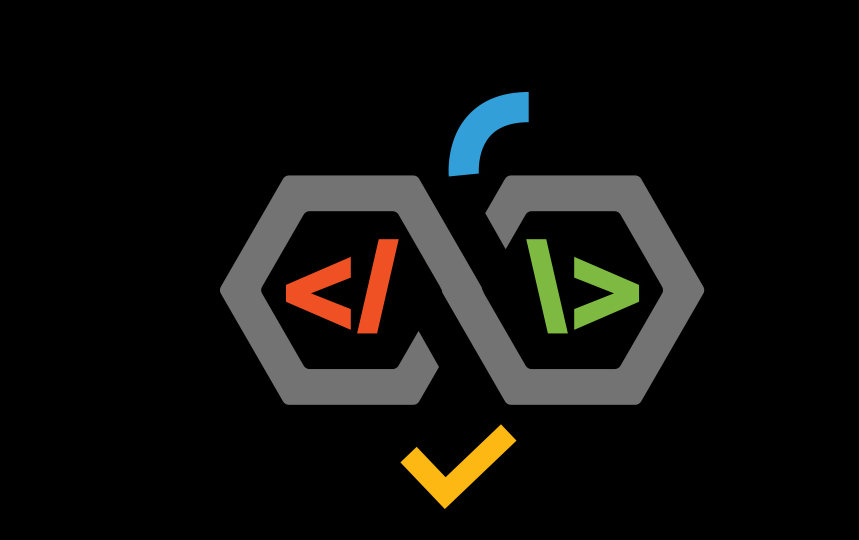Game of Learners (GOL) Season is a 5-week virtual hackathon designed for students in higher education. The program focuses on providing a fun and experiential learning competition where participants can showcase their skills and talents.
Throughout the hackathon, the participants' journey is documented and shared on various online platforms as the GOL Show. This documentation allows a wider audience to follow along with the participants' experiences, challenges, and accomplishments. It serves as a source of inspiration for others who may be interested in pursuing technology-related fields.
A key aspect of GOL is the involvement of Microsoft Learn Student Ambassadors, who act as Team Captains. This role gives them an opportunity to develop and enhance their leadership skills by guiding and mentoring their respective teams. It helps them grow as leaders while supporting their team members' technical skill development.
The projects submitted by the participants are evaluated and judged by Microsoft and its partners. This partnership ensures that the judging process aligns with industry expertise and standards. The feedback provided by the judges is valuable for participants, as it helps them learn and improve their skills.
Season 4 (2023)

Theme: Access to Primary Healthcare
Challenge Statement:
Healthcare systems in Africa face several challenges including inadequate health infrastructure, shortage of health care personnel, limited access to essential medicine, low health literacy and poor health seeking behavior. These makes it difficult for individuals and communities to receive quality primary healthcare. The increasing access to affordable digital technology provides an opportunity to address these challenges. How can innovations in digital technology improve consumers’ access to health information, products, and health services?
Winner: Team Ruby
STATS:
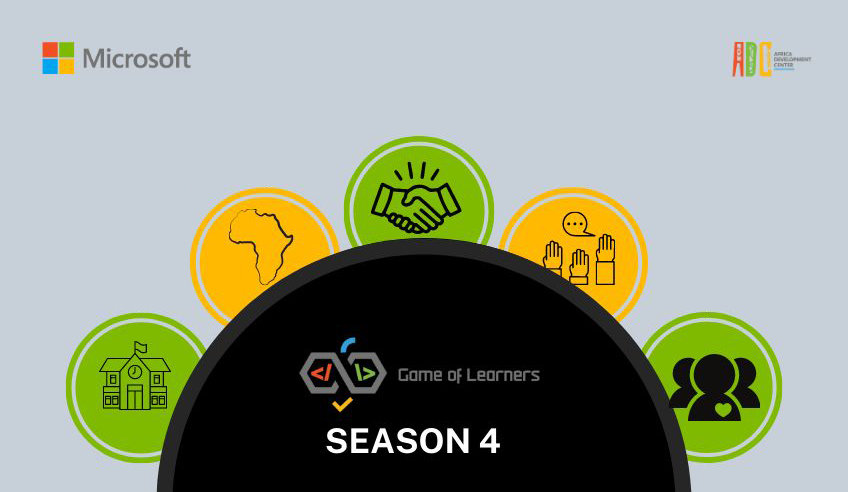
UNIVERSITIES
A record 51 universities & institutions of higher learning participated in GOL Season 4
PARTICIPATING COUNTRIES
Kenya, Rwanda, Burundi, Uganda, DRC, Nigeria, Togo, Cameroon, Ghana, South Africa, Zambia
PARTNERS
PSI & Amref health africa
PARTICIPANTS
Season 4 had a record 80 participants, divided into 16 teams
VOLUNTEERS
32 coaches, 20 trainers/advisors, 28 judges, and 20 mentors volunteered
Season 3 (2022)
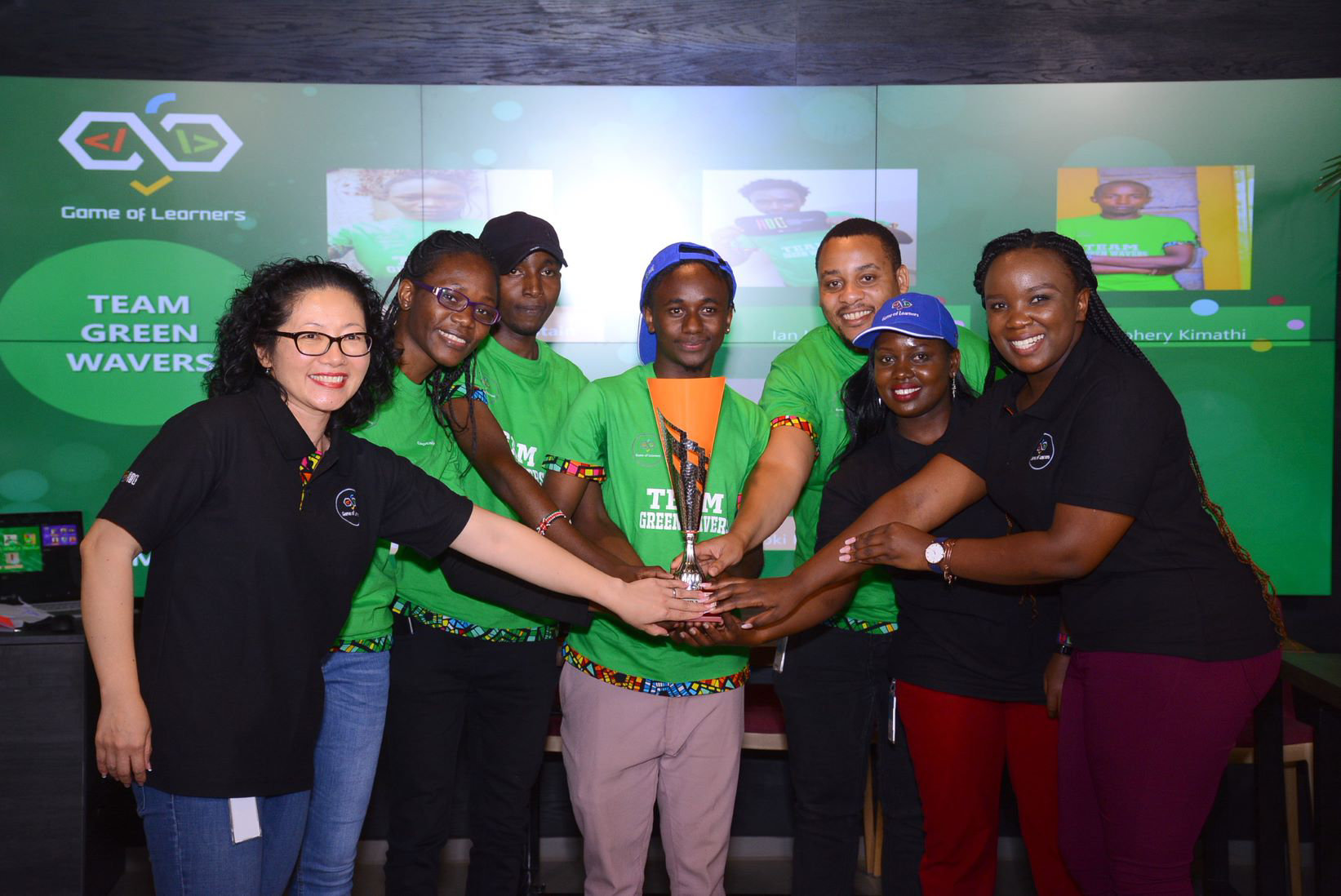
Theme: Climate Change & Sustainability
Challenge Statement:
Climate change is a major source of the increased frequency and intensity of droughts, floods, unpredictable weather conditions which directly harm animals, destroy the places they live, and wreak havoc on people’s livelihoods and communities.
Healthcare systems in Africa face several challenges including inadequate health infrastructure, shortage of health care personnel, limited access to essential medicine, low health literacy and poor health seeking behavior. These makes it difficult for individuals and communities to receive quality primary healthcare. The increasing access to affordable digital technology provides an opportunity to address these challenges. How can innovations in digital technology improve consumers’ access to health information, products, and health services?
The links between climate change and sustainable development are strong. Environmental sustainability encompasses concerns about greenhouse gas mitigation, renewable energy, soil erosion, water management, soil quality, and air and water pollution. In Africa, we are looking at solutions that will help reduce the effects of climate change on society.
As a GOL participant and with the help of the technology provided, what solution can you develop to address the effects of Climate Change in the Continent?
Winner: Team Green Wavers
STATS:
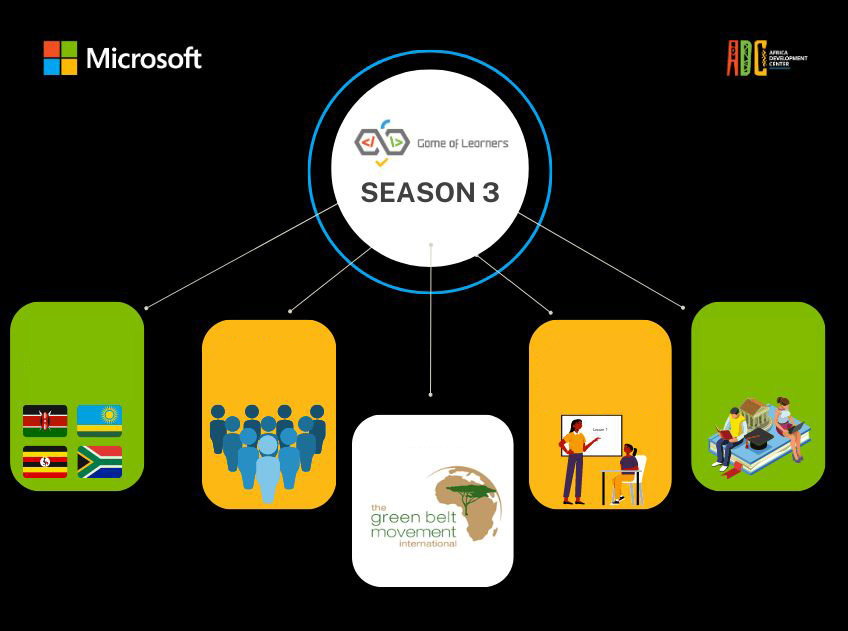
4 countries participated: Kenya, Rwanda, Uganda, South Africa
40 participants b divided into 8 teams.
Partner : The green beit movement international
70 volunteers: 2 commentators, 16 coaches, 19 trainers/advisors, 21 judges, 12 mentors
18 Universities & colleges participated
Season 2 (2021)
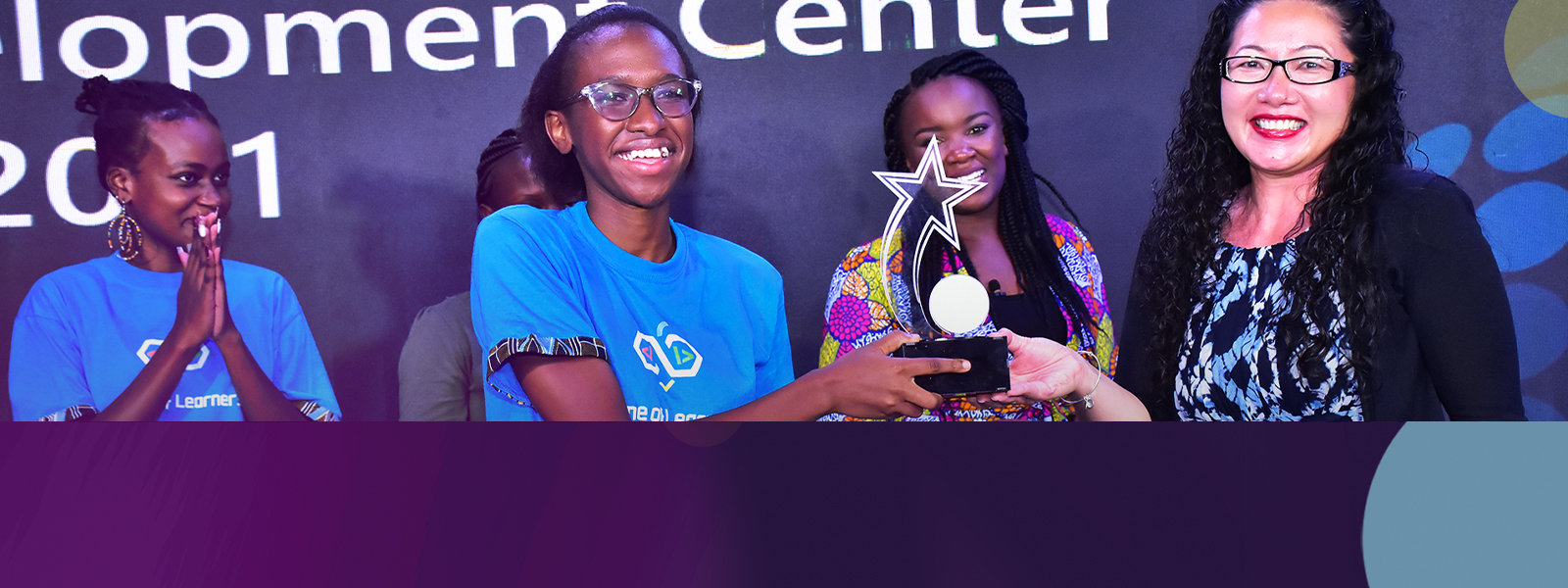
Theme: Access to Education
Challenge Statement:
Some of the challenges facing education in Africa are: Poor quality environment such as overcrowding; lack of proper facilities like textbooks and learning resources; poverty in most of the countries making it hard to employ qualified teachers; cultural practices that dictate early marriages; and lack of resources such as power, internet and devices. This has in turn delayed critical development journey that accelerates economic growth and most importantly, social well-being. How can advances in digital technology help Africa reverse this situation?
Winner: Team Bloom
STATS:

2: The 2nd season had participants from 2 countries; Kenya & Nigeria
18: Universities and colleges participated in the 2nd GOAL season.
60: We had a total of 60 participants, divided into 12 teams.
76: Volunteers including 24 coaches, 19 trainers/advisors, 21 judges, 12 mentors.
Season 1 (2020)
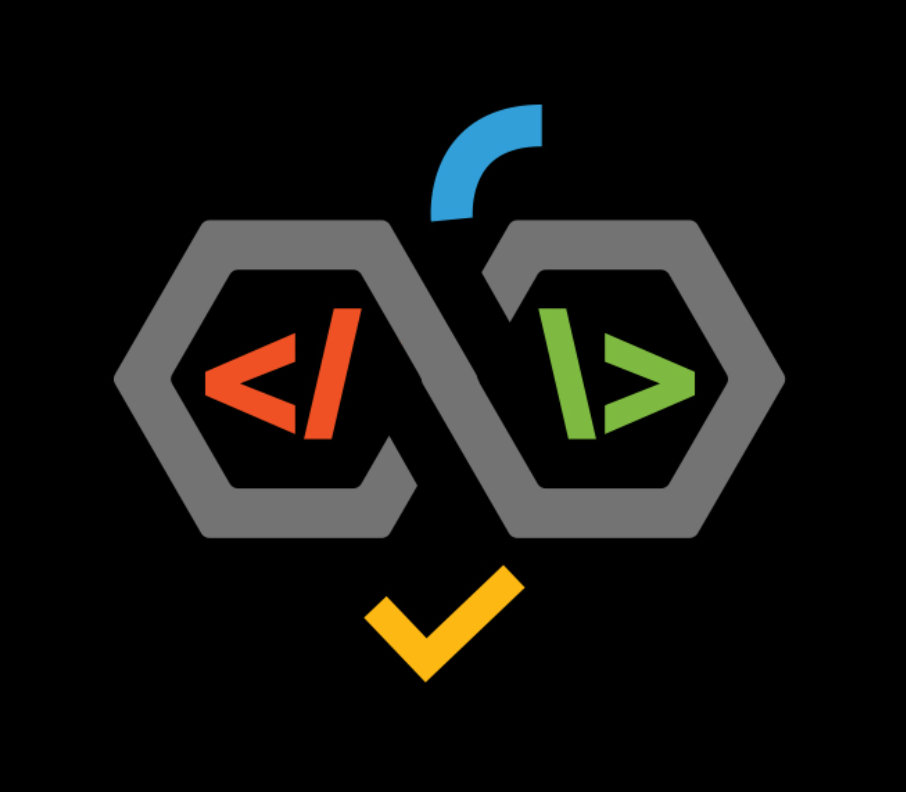
Theme: Access to Medical Care
Challenge Statement:
Lack of access to affordable care due to natural disasters and work are some of the reasons that prevent people from seeking treatment at healthcare centers. This increases the cases of patients opting for self-treatment without having the proper medical knowledge.
How can we use technology to create e-health systems that will enable patients to access these normal medical services remotely, from their homes?
Winner: Team RemD
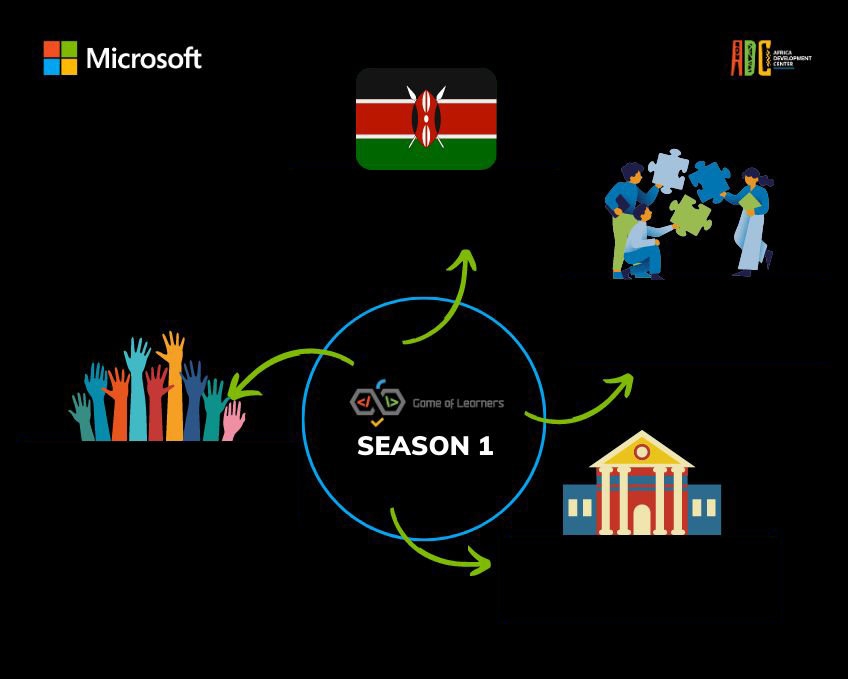
34 volunteers: 10 coaches, 5 trainers/advisors, 7 judges, 12 mentors
The first season had participants from Kenya
The season had 25 participants divided into 5 teams
11 Universities & colleges participated GOL Season 1

